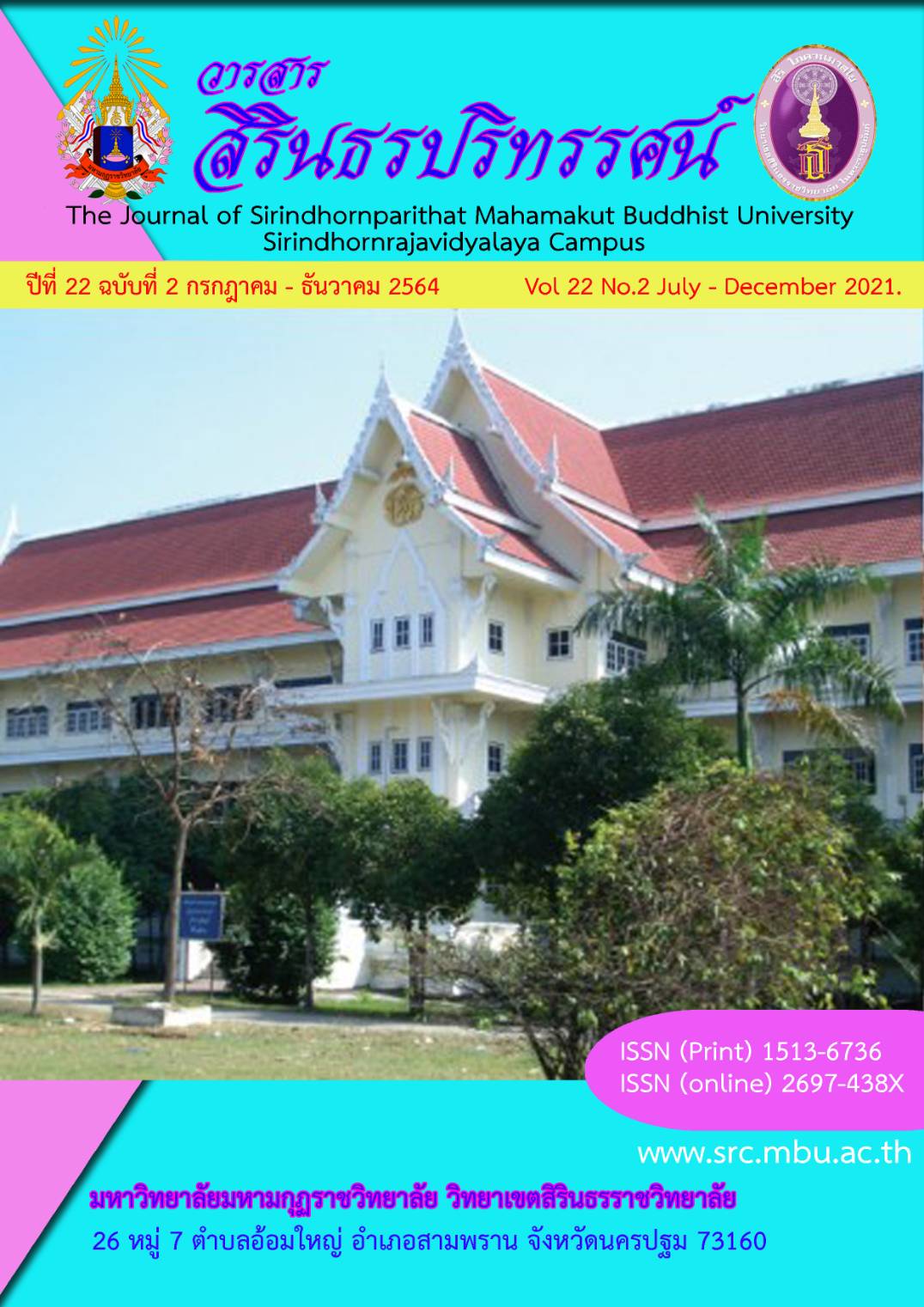Curriculum and competency-based teaching in school
Keywords:
Educational, Competency-based curriculumAbstract
The changing problem of the social context and the world situation causing students to be unable to adapt to the changes in the aforementioned world. An important factor is that the curricula of different levels of education have not responded to the changes that have occurred. Learners have knowledge but lack the ability to use knowledge. inability to apply knowledge in life Learn by necessity, therefore having knowledge and understanding at a superficial level, not knowing deeply, not knowing the truth, do not know oneself, They do not know their potential and aptitude. Do not see the value of learning and learning is meaningless to oneself and one's life. This problem is mainly caused by teaching and teacher evaluation. This is the result of a curriculum that sets learning standards and a number of content-based metrics. Including requiring teachers to take exams according to indicators, causing teachers to rely on content as the main teaching, as well as to accelerate teaching in order to be able to teach students according to the curriculum. Including teaching and learning management that is not effective enough resulting in ineffective learning. Because the curriculum is a framework for teaching teachers. Therefore, it is necessary to adjust the curriculum in the direction that leads to the desired quality of learners, if you want high performance learners, An able to put knowledge to practical use Adjusting the curriculum with the goal of competency development is therefore imperative to develop a competency-based curriculum because it is a guideline that can orient the teaching and learning process to development that prioritizes the skills and competencies required for learners because success in life of learners depends on the level of competence of the learners themselves. Which competency-based Curriculum can solve such problems.
References
กระทรวงศึกษาธิการ. (2551). หลักสูตรแกนกลางการศึกษาขั้นพื้นฐานพุทธศักราช 2551. กรุงเทพฯ : กระทรงศึกษาธิการ คณะกรรมการอิสระเพื่อการปฏิรูปการศึกษา.(ม.ป.ป.). รายงานพันธกิจด้านการปฏิรูปการศึกษาผ่านหลักสูตรและการเรียนการสอนฐานสมรรถนะ (A Commission Report on Education Reform through Competency-Based Curriculum & Instruction). กรุงเทพฯ : ม.ป.ท.
ทิศนา แขมมณี. (2550). ศาสตร์การสอน องค์ความรู้เพื่อพัฒนาการกระบวนการเรียนรู้ที่มีประสิทธิภาพ. กรุงเทพฯ : สำนักพิมพ์จุฬาลงกรณ์มหาวิทยาลัย.
ธำรง บัวศรี. (2532). ทฤษฎีหลักสูตร : การออกแบบและพัฒนา. กรุงเทพฯ :โรงพิมพ์คุรุสภา.
สำนักงานคณะกรรมการการศึกษาแห่งชาติ , สำนักนายกรัฐมนตรี. (2545).พระราชบัญญัติการศึกษาแห่งชาติ พ.ศ. 2545. กรุงเทพฯ : บริษัทพริกหวานกราฟฟิตจำกัด.
สำนักงานเลขาธิการสภาการศึกษา. (2562).เข้าใจสมรรถนะอย่างง่าย ๆ ฉบับประชาชน และเข้าใจหลักสูตรฐานสมรรถนะอย่างง่ายๆ ฉบับครู ผู้บริหาร และบุคลากรทางการศึกษา. กรุงเทพฯ : กระทรวงศึกษาธิการ.
สำนักงานเลขาธิการสภาการศึกษา. (2562). เเนวทางการพัฒนาสมรรถนะผู้เรียนระดับการศึกษาขั้นพื้นฐาน. กรุงเทพฯ : บริษัท 21 เซ็นจูรี่ จำกัด.
สำนักงานเลขาธิการสภาการศึกษา.(2562). รายงานผลการวิจัยและพัฒนากรอบสมรรถนะผู้เรียนระดับประถมศึกษาตอนต้นสำหรับหลักสูตรการศึกษาขั้นพื้นฐาน. กรุงเทพฯ : บริษัท 21 เซ็นจูรี่ จำกัด.
สำนักงานเลขาธิการสภาการศึกษา.(2563). การจัดการเรียนรู้ฐานสมรรถนะเชิงรุก. กรุงเทพฯ : บริษัท 21 เซ็นจูรี่ จำกัด.
อาภรณ์ ใจเที่ยง. (2550). หลักการสอน. พิมพ์ครั้งที่ 4. กรุงเทพฯ : โอเดียนสโตร์.
Competency Based Training. (1992). A Practical Guide for Frontline Trainers. National Centre for Competency Based Training. Australia.
McClelland, D. C. (1973). Testing for competence rather than intelligence. American Psychologist, 28(1), 1-14.
Joyce, B. & Weil , M. ( 1996). Model of teaching. London : Allyn and Bacon.
Downloads
Published
Issue
Section
License
Copyright (c) 2022 Mahamakut Buddhist University

This work is licensed under a Creative Commons Attribution-NonCommercial-NoDerivatives 4.0 International License.
บทความที่ได้รับการตีพิมพ์เป็นลิขสิทธิ์ของ มหาวิทยาลัยมหามกุฏราชวิทยาลัย วิทยาเขตสิรินธรราชวิทยาลัย
ข้อความที่ปรากฏในบทความแต่ละเรื่องในวารสารวิชาการเล่มนี้เป็นความคิดเห็นส่วนตัวของผู้เขียนแต่ละท่านไม่เกี่ยวข้องกับหาวิทยาลัยมหามกุฏราชวิทยาลัย วิทยาเขตสิรินธรราชวิทยาลัย และคณาจารย์ท่านอื่นๆในมหาวิทยาลัยฯ แต่อย่างใด ความรับผิดชอบองค์ประกอบทั้งหมดของบทความแต่ละเรื่องเป็นของผู้เขียนแต่ละท่าน หากมีความผิดพลาดใดๆ ผู้เขียนแต่ละท่านจะรับผิดชอบบทความของตนเองแต่ผู้เดียว




